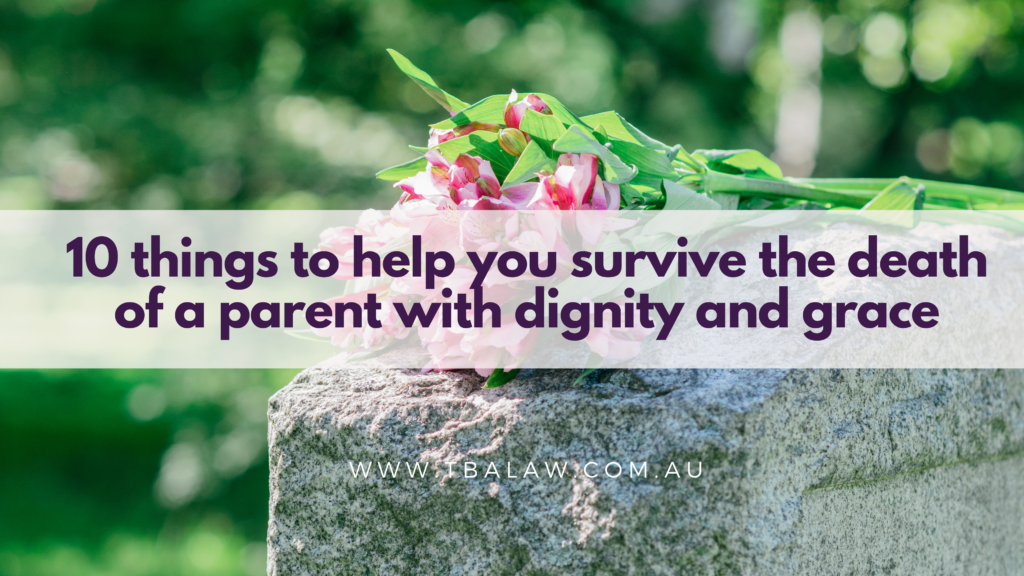10 things to help you survive the death of a parent with dignity and grace
The death of a parent can rock your world, and leave you and your siblings in turmoil. But you can survive the death of a parent with dignity and grace, and you can maintain a great relationships with your siblings, even if there are disagreements along with way.
Taking your time to grieve
Be patient with yourself and understand that others are grieving too. Everyone grieves differently. Don’t make hard decisions while you grieving. Give yourself time. There is no reason to rush making decisions, so don’t let anyone pressure you so that you feel like you need to make a decision quickly.

Do the doing
Doing the doing is about having a daily routine that you stick to so that you’re still living and still moving through your life, so that your life doesn’t stop. Keeping a routine will help you have some normalcy in your life, even if there is a gaping hole. And when things arise, you can take tasks step by step.
Listen openly
Particularly when we’re grieving and are having trouble making reasonable decisions, we also make a lot of assumptions and don’t actually listen to what people are saying. Or we might listen to what the words are, but we’re not actually thinking about the underlying meaning or realising that what they’re saying may also be coming from a place of grief. Giving yourself time, after listening before responding, can also be really crucial to help you survive this time with dignity and grace. Understand that everyone deals with death differently.
Everyone deals with death differently
You may have heard that there are many stages of grief, but those stages aren’t steps that people move through sequentially. They are different emotions that people might spiral in and out of constantly. And the time that people take to grieve is different as well for everyone. So as well as giving yourself a break, please give others a break around you.
Don’t attack
In taking time to make decisions and to give yourself and others a break, it is also important not to lash out or attack anyone in anger. Even when people are understanding that you’re grieving, it is hard to take things back that are said in anger.
If you are angry, find a way to release that anger without taking it out on your other family members.
Does a Will exist?
Knowing whether a will exists or not can help you through the period of grief with dignity and grace. Find the will, find out where the original will is. Make sure that everyone has a copy of it, so that everyone has a level playing field.
Notify those who need to know
Notify the people who need to know about the death of your parent. Most official notifications can wait until the death certificate arrives, which is usually four to six weeks after someone has passed away. There’s no rush to notify people officially. But once the death certificate arrives, make sure that the banks know, make sure that the superannuation company knows, make sure that the private health company knows.
We do offer a list of who to notify, which can be downloaded here.
Remember your parent was human (and not always right)
It’s also important in this time to remember that your parent was human. That means that they also made some poor decisions and were not always right.
Communicate regularly
Communicating regularly is really important during this time, and communicating openly without judgment. Try not to hold things against others. Keeping everyone notified about what is happening, who’s making what decision and what the next steps are, is very important.
Don’t unnecessarily escalate
While people are grieving, we don’t want to create extra anxiety or other unnecessary emotions. Finally, when we’re grieving, we can also unnecessarily escalate situations and blow them up when they don’t need to be.





Leave A Comment